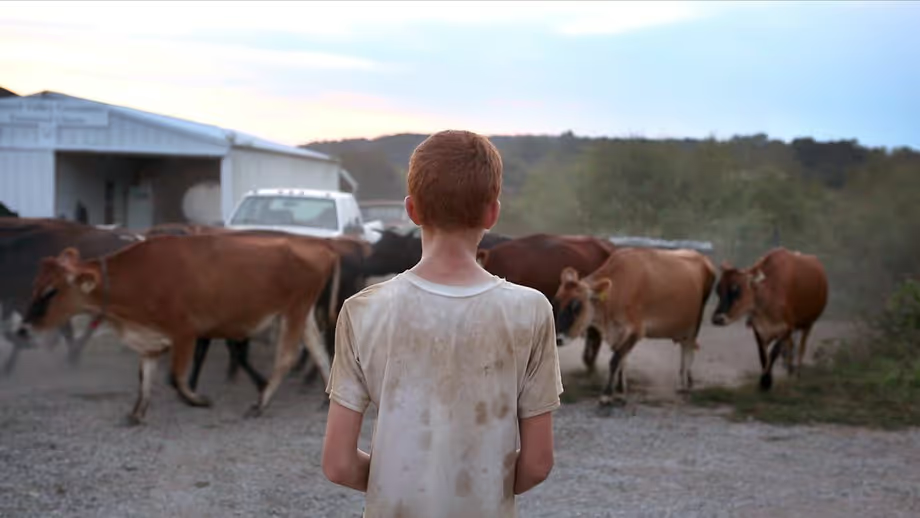Farmsteaders Delve Deeper Reading List
Adult Nonfiction

Berry, Wendell. The Mad Farmer Poems. CounterPoint Press, 2014.
During the otherwise quiet course of his life as a poet, Wendell Berry has become “Mad” at what contemporary society has made of its land, its communities, and its past. This anger reaches its peak in the poems of the Mad Farmer, an open-ended sequence he’s found himself impelled to continue against his better instincts.
Kurlansky, Mark. Milk! Bloomsbury, 2018.
Today, milk is a test case in the most pressing issues in food politics, from industrial farming and animal rights to GMOs, the locavore movement and advocates for raw milk, who controversially reject pasteurization. Profoundly intertwined with human civilization, milk has a compelling and surprisingly global story to tell, and historian Mark Kurlansky is the perfect person to tell it. Tracing the liquid's diverse history from antiquity to the present, he details its curious and crucial role in cultural evolution, religion, nutrition, politics, and economics.
Dougherty, Beth. The Independent Farmstead: Growing Soil, Biodiversity, and Nutrient Dense Food with Grassfed Animals and Intensive Pasture Management. Chelsea Green Publishing, 2016.
Twenty years ago, when authors Shawn and Beth Dougherty purchased the land they would come to name the Sow’s Ear, the state of Ohio designated it “not suitable for agriculture.” Today, their family raises and grows 90% of their own food. The Independent Farmstead is a resource for new and prospective farmers and homesteaders.
Kimball, Kristen. The Dirty Life: A Memoir of Farming, Food, and Love. Scribner/Simon and Schuster, 2010.
When Kristin Kimball left New York City to interview a dynamic young farmer named Mark, her world changed. On an impulse, she shed her city self and started a new farm with him on five hundred acres near Lake Champlain. The Dirty Life is the captivating chronicle of the couple’s first year on Essex Farm, from the cold North Country winter through their harvest-season wedding in the loft of the barn. Kristin and Mark’s plan to grow everything needed to feed a community was an ambitious idea, and a bit romantic. It worked. Every Friday evening, all year round, over a hundred people travel to Essex Farm to pick up their weekly share of the “whole diet”—beef, pork, chicken, milk, eggs, maple syrup, grains, flours, dried beans, herbs, fruits, and forty different vegetables—produced by the farm.
Horn, Miriam. Rancher, Farmer, Fisherman: Conservation Heroes of the American Heartland.W.W. Norton & Company, 2017.
Unfolding as a journey down the Mississippi River, Rancher, Farmer, Fisherman tells the stories of five representatives of this stewardship movement: a Montana rancher, a Kansas farmer, a Mississippi riverman, a Louisiana shrimper, and a Gulf fisherman. In exploring their work and family histories and the essential geographies they protect, Rancher, Farmer, Fisherman challenges pervasive and powerful myths about American and environmental values.
Logdon, Gene. Letter to a Young Farmer: How to Live Richly Without Wealth on the New Garden Farm. Princeton Architectural Press, 2017.
For more than four decades, the self-described “contrary farmer” and writer Gene Logsdon has commented on the state of American agriculture. In Letter to a Young Farmer, his final book of essays, Logsdon addresses the next generation―young people who are moving back to the land to enjoy a better way of life as small-scale “garden farmers.” It’s a lifestyle that isn’t defined by accumulating wealth or by the “get big or get out” agribusiness mindset. Instead, it’s one that recognizes the beauty of nature, cherishes the land, respects our fellow creatures, and values rural traditions. It’s one that also looks forward and embraces “right technologies,” including new and innovative ways of working smarter, not harder, and avoiding premature burnout.
